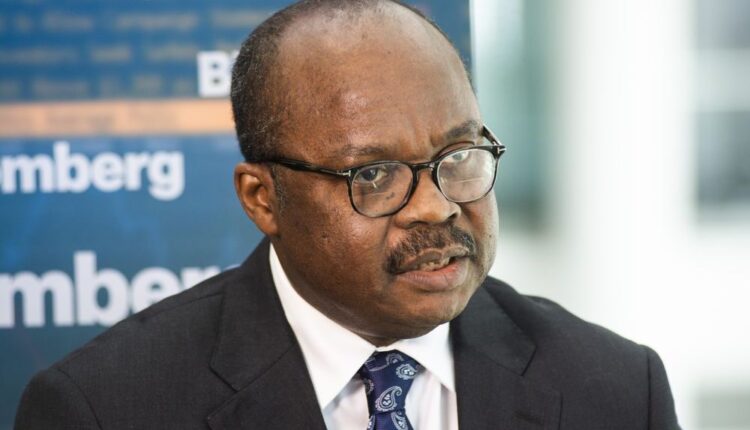‘Covid-19 could reverse 10-year gain’ – Addison seeks help for poor countries
The adverse impact of the COVID-19 pandemic could shave off about 10 years of gains achieved by poor countries across the globe, Chairman of the Board of Governors of IMF and the World Bank Group, Dr Ernest Addison, has said.
“We are facing the prospect of years of poverty reduction and economic progress being reversed by the pandemic”, he remarked in his address at the 2020 IMF/World Bank Annual Meetings Thursday.
The covid-19 contagion swept through countries across the globe with a severe impact on lives and businesses. Over 38.5million cases have been recorded with close to 1.1million deaths.
A study by the International Labour Organisation (ILO) published in April 2019 estimated about 305 million full-time job losses worldwide.
Ernest Addison who is the governor of the Bank of Ghana expressed concern about the severe hit emerging markets and low-income countries have had to take on since the outbreak.
“The shock waves from the COVID-19 crisis could lead to a lost decade for the world’s poorest countries unless they receive urgent help and financial assistance” he said.
READ ALSO: COVID-19 Has Rendered 500,000 People Jobless In Ghana – TUC
“Though the pandemic has evolved more slowly than in other parts of the world, many of these economies have been affected by spillovers from weaker global demand, lower commodity prices, and a drop in tourism, with a disproportionate impact on low-skilled workers and those employed in the informal sector, potentially pushing families back into poverty,” he lamented.
He said the lockdown had been an option to curb the spread of the pathogen but many households risk going hungry if a lockdown lasts more than two weeks.
This can lead to malnutrition and worsened health outcomes. Also, widespread school closures and lack of internet access for remote learning, risk leading to a significant loss of learning and human capital and can reduce lifetime earnings for children in low-income countries. Many of these children, particularly girls, are not likely to return to school after the pandemic.
This has called for swift intervention by the government. In Ghana, for example, authorities have implemented a range of public health and socioeconomic measures, such as using drones to deliver samples for testing and delivery of essential services, supporting front-line health workers, covering the cost for testing and treatment, and providing economic relief to citizens and enterprises, including offering food assistance and free utility services.
For Dr Addison, he was worried that countries countries’ additional COVID-related fiscal spending has led to higher financing requirements.
The World Bank (WB) and the International Monetary Fund (IMF) has been at the helm of affairs offering support to various countries.
READ ALSO: Over 100,000 Jobs Lost Due To COVID-19 – BoG
Dr Addison explained that the IMF “doubled access to its emergency financing facilities and has provided financial assistance to over 80 countries. It has also provided grant-based debt service relief through the Catastrophe Containment and Relief Trust”.
For the part of the World Bank, it has provided up to 160 billion dollars in financing tailored to the health, economic, and social shocks countries are facing. Emergency operations to fight the pandemic have reached 100 developing countries, he said.
He further called for more support systems for susceptible countries and groups.
“The crisis is not over, and the pandemic continues to take a significant toll, as more people have slipped into poverty and inequality has worsened, particularly among women and children who have been the hardest hit. The role of the Bretton Woods institutions in galvanizing global attention and support, particularly for the most vulnerable, is commendable. But there is still room to address the needs of all members better,” he stressed.


